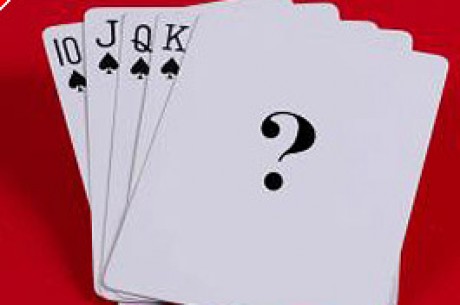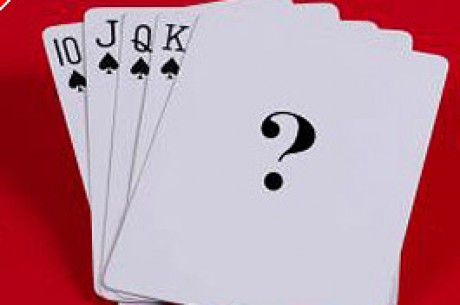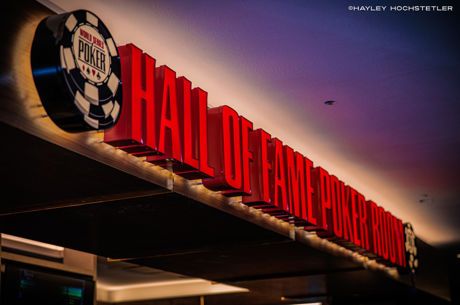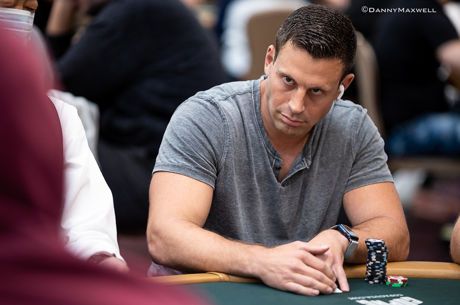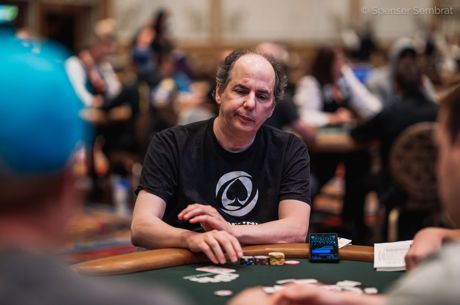Two Million Questions. Will Poker Answer?: Part One
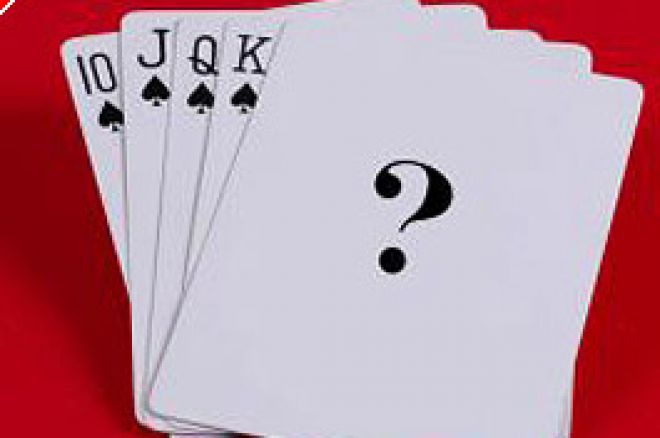
As Poker seeks and gains more respectability with each successful tournament, each new television program and each lucrative advertising deal, the 'powers that be' within the growing poker community have more responsibility to ensure the integrity and fairness of the game. Poker has emerged from the dark, smoke-filled back room and has entered the mainstream of world culture and popular sports enthusiasm. Much of poker's growth is coincident with gambling's new consolidated company structures which bring more marketing resources and corporate respectability to the game. But just as poker has outgrown Benny's Bullpen, the former setting of the WSOP, it also appears to have outpaced the control processes and security measures once designed to ensure a fair and honest game.
It appears there may have been a major breach during the play and execution of 2006 World Series of Poker Championship Event. In this series of articles, we will put forth the data and arguments that support the claim that, through a significant but inadvertent error, two million chips were added to the main event during a chip color-up. We will also examine and refute other plausible explanations for the chip increase during the Main Event. In and of itself, this breach bodes ill for the largest sporting event in history. But the bigger issue has to be addressing the problems that allowed this breach and others like it, to occur. Arguably, Poker's new corporate custodians, because of their management culture and deeper resources, may be best positioned to design, standardize, and implement better security and control procedures. With these articles, it is our hope that they will step up to the plate and constructively foster poker's continued growth.
Taking a Page from Football's Folly:
On October 6, 1990 the Colorado Buffalos scored a touchdown on the last play of the game to defeat the Missouri Tigers. The University of Colorado went on to secure the national championship, edging out undefeated Georgia Tech. There was only one problem. Colorado scored their last minute victory against Missouri on an illegal extra down; the fifth down.
The 1990 College Football Championship became one of the most contentious sports debates of the era, so much so that the terminology "the fifth down" has come to represent one of the most egregious scenarios in sports; where the officials not only fail their responsibilities to maintain the integrity and credibility of the sport, they unwittingly become the perpetrators of the infraction.
Poker's Fifth Down:
It appears that the 2006 WSOP Championship was played with an "officials" fifth down. By the time the final table had been set for the largest poker tournament in history, with $37.8 million of the total $82.6 million prize pool yet to be decided, Harrah's was already aware that the number of chips in play was far greater than the number suggested by the starting field. According to Harrah's records, there were 8,773 paid players in the record field of the 2006 WSOP Championship. The WSOP Championship Event is a one chip per one dollar event. In other words, all players received 10,000 chips at the start of play, resulting in a total starting chip count of 87,730,000. But at the conclusion of the last day of play before the final table, Harrah's own official chip count totaled 90,140,000. Starting two days prior to the final table, there were a number of inquiries made by the poker media relative to the sudden chip increase. Harrah's simply had no answer.
Because of an unscheduled day off between Day Seven and the Final Table on Day Nine, there was ample time to investigate and potentially mitigate the unwarranted introduction of such a large number of chips into play. The chip count could be verified, surveillance tapes (required by Nevada statutes to be maintained for seven days) could have been reviewed, the Nevada Gaming Commission could have been notified, employees and staff could have been questioned. But when the final day arrived, the chip counts were not revised and play continued on.
When Jeffery Pollack, Harrah's appointed WSOP Commissioner, held his pre-final table press conference, it had all the look and feel of a stock holder relations meeting; the WSOP will continue to grow under Harrah's corporate care, poker will be the new NASCAR and thrive with deep pocket corporate sponsorships, and Harrah's is taking care of all the details, no matter how small. As far as the details of how approximately two million extra chips were introduced into the richest sporting event in history, the mostly late-to-the-dance media didn't ask and Pollack didn't offer.
In almost every respect, Pollack has been an overachiever during his short tenure as WSOP Commissioner; successfully branding the WSOP and attracting high dollar sponsorships and endorsement deals. But even Pollack acknowledges that his ability to effectively market the WSOP is contingent on the product he represents; there can be no disconnect between message and quality. Perhaps in prophetic irony, in an earlier interview with PokerNews.com, Pollack is quoted saying, "If you get what happens on the playing field right, then you are in a position to go attract media partners."
The mainstream media may have been satisfied that all was running according to the corporate well-oiled machine that Pollack's press conference represented. After all, they were going to get their standard story of a millionaires' final table and the richest Cinderella in sports history. Players, poker media, tournament staffers, and enthusiasts watching the event via the internet, were not as easily placated. If Harrah's wasn't going to bring it out in the open, the internet was.
Possible Explanations:
Starting on August 8th, the last day of play before August 10th's final table, forums and blogs noted the chip count discrepancy. Speculations ran from normal chip accretion through chip races and dead stacks, to player cheating, and finally to staff errors.
While the normal chip accretion argument is intuitively appealing and satisfied some, in our next article we will discuss why the math and chip counts throughout the tournament don't lend much credence to its explanatory power. As far as cheating goes, there was certainly opportunity and motive. We'll discuss the many examples of lax chip security procedures. And with the richest prize pool in sports history at stake, it would be hard to say that players, backers, and/or sponsors lacked incentive to consider chicanery. But as we shall see, the timing, logistics, and scale of the chip increase cripples both the motive and opportunity for cheating. Could this be, as many speculated, a simple, but preventable, mistake with significant consequences? If so; how, when, and where did it occur?
Chip Count Caveat and Disclosure:
In part, many of our arguments are supported by chip count data. It should be noted that the accuracy of chip count data is always problematic during a major tournament. Official casino counts are an end-of day compilation of each individual player's chip count, recorded on their sealed chip bag. Individual player counts are supposed to be verified by the dealers, but the verification process sometimes gets short shrift in large fields or at the end of a fourteen hour playing day. It is also not unheard of to come across an occasional typo/data entry error in official count data.
Chip counts provided by other media outlets during the day have some logistical challenges that impact accuracy. The media is not allowed to physically count the chips and therefore must do a visual count. Chip counts taken while play is in progress become inaccurate as hands progress and chips change hands during the tally. For this reason, chip counts performed during breaks tend to be more accurate.
While we feel that we have relied on the most supportable chip count numbers, the inherent flaws and variation in chip count data has to be acknowledged.
The Questions:
Our title implies that there are as many questions as extra chips introduced into the Main Event. In actuality there are far fewer. In our third article, we will deal with the age old question of treachery versus incompetence; was the chip increase due to a cheating player or a preventable and unfortunate administrative mistake? As important as that question is, the few questions that remain may be more important for poker to address. Although this was only one incident (albeit during the largest poker tournament in history), it was borne from issues that have become prevalent in the industry. The lax security and outdated control procedures that were in evidence during the 2006 WSOP are not uncommon. They are a legacy from poker's earlier days; when events were more than an order of magnitude smaller and tournament personnel wasn't stretched out over double digit hour shifts, managing multiple events over more than half a dozen weeks.
That players are now paying premium prices for tournament administration is not lost on them. The players paid over $5 million for the administration of this year's Main Event, alone. Tournaments now represent player-supplied prize pools totaling millions of dollars. As poker's rewards have grown, so has the potential liability to both casinos and participants should something "go wrong." Will hosting casinos bring their corporate resources to bear on tournament security and control issues? Will the Tournament Directors Association once again be yoked with the heavy lifting required to insure poker's level playing field? Will the so far absent Nevada Gaming Commission realize the financial liability and credibility issues poker now faces? Will the consuming public, the players, demand more? We don't know the answers to the big questions. We can only examine the incident itself in the hopes that doing so will put more significant questions out there.
In our next two articles, we will take on each of the explanations of the added 2 million chips. We will mathematically demonstrate that even in the most extreme scenario, the chip race-off argument can account for only a miniscule increase in the original chip pool. We will argue that even with the lax control of chips in earlier events and during the main event, the reality of adding two million chips through direct player cheating is unsupportable. Dead stacks blinded off, double registrations and all of the other smoke screens will also be cleared away. In the end, we will postulate that the massive infusion of chips into the Main Event was the result of a mathematical error made by Harrah's floor staff who inadvertently introduced two million extra chips during a chip color-up.
In the fourth article, we will turn over the discussion to the reactions and responses from players, tournament officials and other industry participants. In our final installment, an open letter to the industry, we will outline some basic recommendations and procedures that we hope will be considered. For more, read "Two Million Questions. Will Poker Answer?: Part Two."

